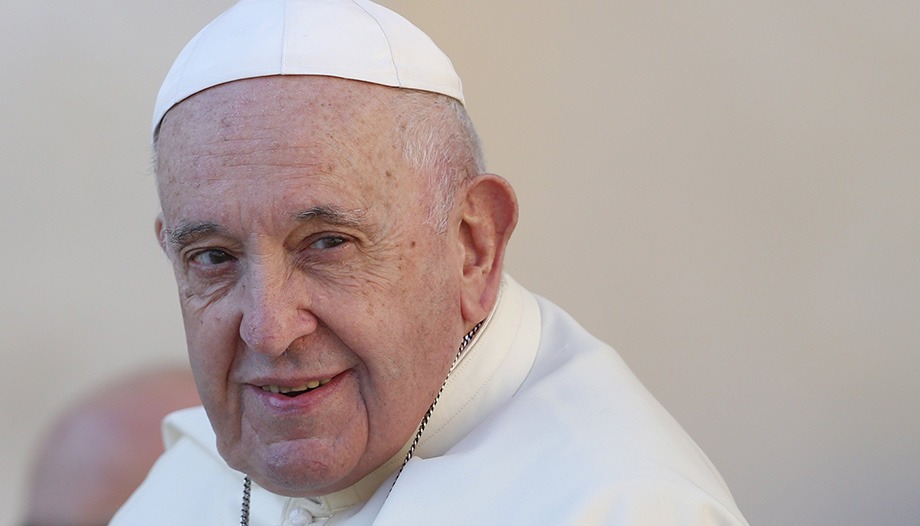Con ocasión de estos temas de fondo manifestados por el Papa Francisco en estos diez años como Sucesor de Pedro, Omnes ha ido recogiendo artículos y colaboraciones que puede venir bien recordar, para entender mejor el gobierno del Papa.
Sin ánimo de ser exhaustivos, porque la relación podría ser larga, he aquí algunos de ellos.
1) Las 9 “apuestas” del Papa Francisco
Giovanni Tridente recordó en su artículo nueve años de pontificado del Papa Francisco al frente de la Iglesia, y nueve retos por los que apuesta el Romano Pontífice. 9 apuestas que continúan plenamente vigentes en el pontificado del Papa argentino
2) La culminación de las reformas en la Santa Sede: “Praedicate Evangelium”.
El 5 de junio de 2022 entró en vigor la Constitución Apostólica ‘Praedicate Evangelium’, sobre la Curia Romana y su servicio a la Iglesia. Culminaba así el proceso de reformas de la Curia y organismos vaticanos que, desde el inicio de su pontificado, ha marcado el paso del Papa Francisco por la sede petrina.
3) El Papa Francisco y las iniciativas de diálogo con el islam.
Andrea Gagliarducci analizó el último encuentro del Papa Francisco con el Gran Imán de Al Azhar en Baréin, que confirma un diálogo basado en el encuentro.
4) Más allá de Ucrania. Preocupación y trabajo por la paz.
El Presidente del Consejo Pontificio para el Diálogo Interreligioso, cardenal Miguel Angel Ayuso, habló con Omnes sobre el Papa, la Iglesia como ‘hospital de campaña’, y el dialogo interreligioso.
5) Lucha contra los abusos. La reforma del libro VI del Código de Derecho canónico.
Otro de los ejes del pontificado de Francisco ha sido la lucha contra los abusos sexuales cometidos por personas de la Iglesia o en su entorno. En este sentido, Omnes entrevistó a Mons. Juan Ignacio Arrieta, Secretario del Pontificio Consejo para los Textos Legislativos, sobre la reforma del Libro VI del Código de Derecho Canónico.
6) La Iglesia sinodal. El reto de una conversión total en formas y estructuras.
El Sínodo de la sinodalidad, un proceso de renovación eclesial en la Iglesia es un tema nuclear en la agenda de Francisco en estos últimos años. Mons. Luis Marín de San Martín, O.S.A., trabaja junto al cardenal Mario Grech y la religiosa francesa Nathalie Becquart, núcleo visible de la Secretaría del Sínodo. Habló así con Omnes del Papa y el Sínodo.
7) Benedicto XVI y Francisco. Continuidad y novedad.
En contra de lo que algunas voces quieran dar a entender, el cardenal Herranz, considera que no existe oposición entre los pontificados de Francisco y Benedicto XVI. En una elocuente entrevista enfatizó que existen «diferentes prioridades pastorales entre ambos, pero no diferencias de fondo».
8) Catequesis: desde los mensajes de san Pablo a la conversión del corazón
Las catequesis de los miércoles de este pontificado han tocado temas muy diversos. La misericordia, la figura de san José o el papel de los ancianos en la sociedad han sido algunos de los protagonistas de estas audiencias.
9) La «sociología» de Francisco
Para Massimiliano Padula, sociólogo de los procesos culturales y comunicativos del Instituto Pastoral de la Pontificia Universidad Lateranense, la influencia de Guardini explica las claves del pensamiento de Francisco.
10) Francisco y los jóvenes
Con ocasión de la JMJ de Lisboa se celebrará del 1 al 6 de agosto de 2023 en la capital portuguesa con el lema “María se levantó y partió sin demora”, el Papa Francisco, «retó» a los jóvenes a una vida en camino como María.








